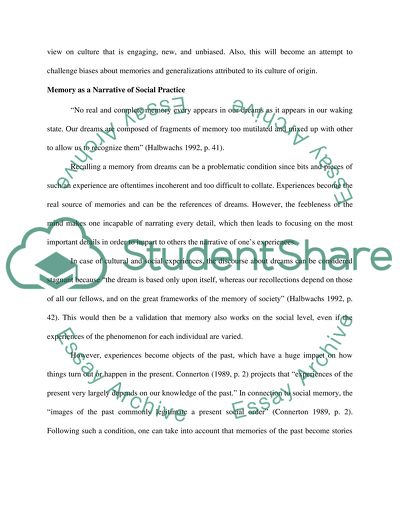Cite this document
(“'Memory is all about claims about the past.' Discuss using appropriate Essay”, n.d.)
'Memory is all about claims about the past.' Discuss using appropriate Essay. Retrieved from https://studentshare.org/anthropology/1473502-ychmemory-is-all-about-claims-about-the-pastyie
'Memory is all about claims about the past.' Discuss using appropriate Essay. Retrieved from https://studentshare.org/anthropology/1473502-ychmemory-is-all-about-claims-about-the-pastyie
('Memory Is All about Claims about the past.' Discuss Using Appropriate Essay)
'Memory Is All about Claims about the past.' Discuss Using Appropriate Essay. https://studentshare.org/anthropology/1473502-ychmemory-is-all-about-claims-about-the-pastyie.
'Memory Is All about Claims about the past.' Discuss Using Appropriate Essay. https://studentshare.org/anthropology/1473502-ychmemory-is-all-about-claims-about-the-pastyie.
“'Memory Is All about Claims about the past.' Discuss Using Appropriate Essay”, n.d. https://studentshare.org/anthropology/1473502-ychmemory-is-all-about-claims-about-the-pastyie.


